Overview of the JROTC Leadership Education and Training Program
The JROTC Leadership Education and Training Program is a dynamic, comprehensive initiative designed to develop leadership skills, character, and citizenship in high school students․ Through structured curriculum, physical training, and community service, cadets gain self-discipline, teamwork, and problem-solving abilities, preparing them for future challenges․
1․1․ Mission and Vision of JROTC
The mission of JROTC is to develop informed, disciplined, and responsible citizens who embody the values of leadership, citizenship, and service․ Its vision is to empower cadets to succeed in their future endeavors by fostering a culture of excellence, teamwork, and ethical decision-making․ The program aims to inspire young leaders to become active contributors to their communities while preparing them for roles in education, careers, and public service․ Through this mission, JROTC seeks to cultivate a lifelong commitment to personal growth and service․
1․2․ Objectives of the Leadership Education and Training Program
The Leadership Education and Training Program aims to develop informed, disciplined, and responsible citizens through a structured curriculum․ Its primary objectives include fostering leadership skills, promoting citizenship, and enhancing academic performance․ The program also focuses on building self-confidence, teamwork, and problem-solving abilities․ By integrating classroom instruction with practical training, JROTC prepares cadets to excel in future academic and professional endeavors․ Additionally, it encourages community service and civic responsibility, equipping students with the tools to become ethical leaders in their communities;
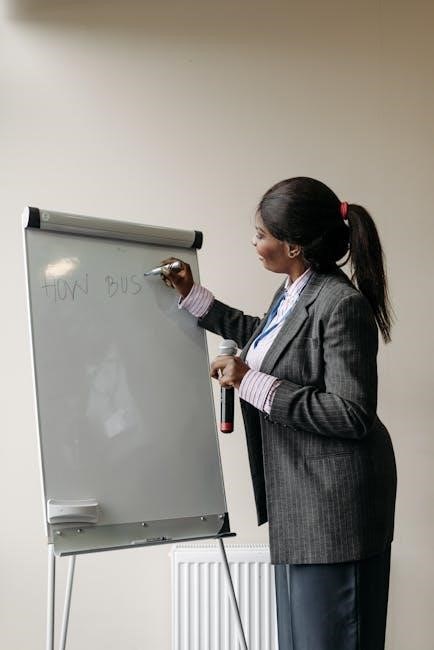
Structure of the JROTC Program of Instruction
The JROTC Program of Instruction combines classroom instruction, leadership labs, physical training, and field exercises to provide a well-rounded leadership development experience for cadets․
2․1․ Classroom Instruction Component
The classroom instruction component of the JROTC Program of Instruction focuses on Leadership Education and Training (LET), divided into four units․ LET 1 introduces foundational leadership concepts, while LET 2, 3, and 4 build on these skills, covering advanced leadership techniques and transition to leadership roles․ The curriculum emphasizes theoretical knowledge and practical application, fostering critical thinking, communication, and decision-making abilities․ Instructors use diverse teaching methods to engage cadets, ensuring a comprehensive understanding of leadership principles and their real-world application․
2․2․ Leadership Labs and Practical Training
Leadership labs and practical training are integral to the JROTC Program of Instruction, offering cadets hands-on experience in leadership development․ These sessions simulate real-world challenges, allowing cadets to apply classroom concepts in practical scenarios․ Activities include field exercises, team-building drills, and leadership exercises that foster decision-making, problem-solving, and collaboration․ Practical training reinforces theoretical knowledge, enabling cadets to develop confidence and competence in leadership roles․ This component is essential for transforming theoretical understanding into actionable skills, preparing cadets for future leadership responsibilities․
2․3․ Physical Training (PT) and Physical Education (PE)
Physical Training (PT) and Physical Education (PE) are critical components of the JROTC Program of Instruction, fostering physical fitness, discipline, and mental resilience․ Cadets engage in regular PT sessions, including exercises like push-ups, sit-ups, and running, to improve strength and endurance․ PE activities promote teamwork and healthy lifestyles, while PT emphasizes leadership by encouraging cadets to motivate peers․ These components build confidence, improve coordination, and prepare students for challenges, aligning with JROTC’s mission to develop well-rounded individuals capable of excelling in both academic and physical environments․
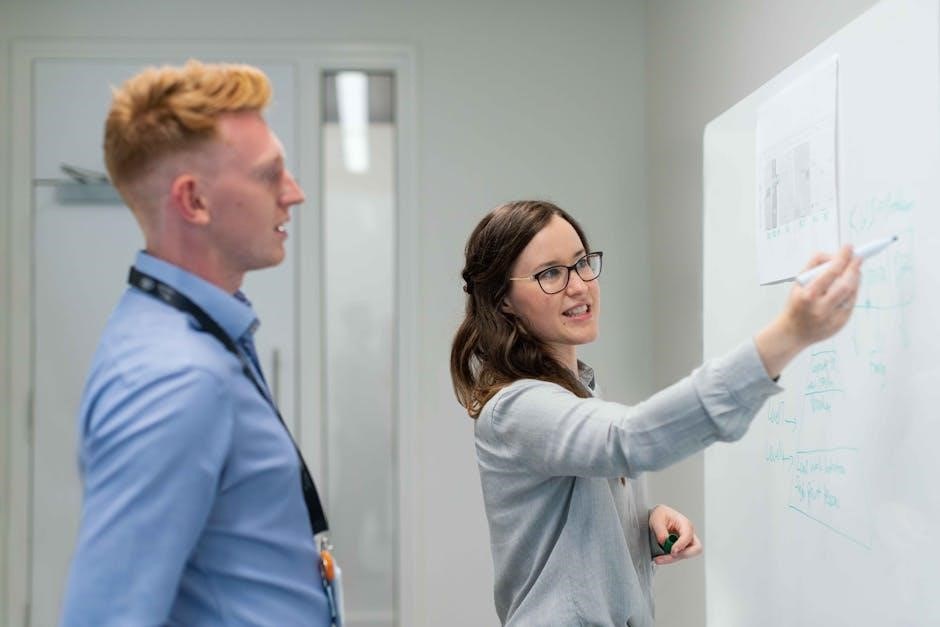
Leadership Development in JROTC
JROTC emphasizes leadership development through structured training, fostering character, decision-making, and teamwork․ Cadets learn to inspire and guide others, preparing them for future leadership roles and challenges․
3․1․ The Role of Leadership Education in JROTC
Leadership education is the cornerstone of JROTC, fostering character development, ethical decision-making, and self-discipline․ The program emphasizes practical skills like communication, problem-solving, and teamwork, preparing cadets for leadership roles in various settings․ Through classroom instruction and practical exercises, students learn to inspire and guide others, building confidence and responsibility․ This foundation equips cadets to excel academically, personally, and professionally, aligning with JROTC’s mission to produce capable and compassionate leaders․
3․2․ Developing Core Leadership Skills
JROTC focuses on cultivating core leadership skills such as decision-making, problem-solving, and effective communication․ Cadets learn to motivate and inspire others, while developing self-confidence and responsibility․ These skills are reinforced through practical exercises, group projects, and real-world applications, enabling cadets to become competent leaders in their communities․ The program ensures that each cadet is well-prepared to handle leadership challenges in both academic and professional environments․
3․3․ Emotional Intelligence and Decision-Making
Emotional intelligence is a cornerstone of leadership development in JROTC, enabling cadets to understand and manage their emotions and those of others․ This skill enhances decision-making, fostering empathy, self-awareness, and social skills․ Through interactive exercises and real-world scenarios, cadets learn to navigate complex situations with clarity and confidence․ By mastering emotional intelligence, they develop the ability to lead effectively, build strong relationships, and make sound, ethical decisions under pressure․
Curriculum and Course Components
The JROTC curriculum includes four units focusing on leadership development, practical training, and ethical decision-making, preparing cadets for leadership roles and lifelong success․
4․1․ Unit 1: The Emerging Leader
Unit 1 introduces cadets to foundational leadership concepts, emphasizing self-discovery, communication, and basic leadership principles․ Cadets explore their personal strengths, values, and goals, while learning teamwork and problem-solving skills․ This unit focuses on developing a growth mindset, preparing cadets to embrace challenges and take on leadership roles within their units and communities․ It lays the groundwork for advanced leadership training in subsequent units, ensuring a strong foundation for future development․
4․2․ Unit 2: Leadership Education and Training (LET 2)
Unit 2 focuses on developing foundational leadership skills, exploring leadership styles, and understanding decision-making processes․ Cadets learn effective communication, problem-solving, and team dynamics․ This unit emphasizes the importance of ethical leadership, responsibility, and accountability․ Through practical exercises and scenarios, cadets apply leadership principles to real-world challenges, fostering confidence and competence․ LET 2 builds on the basics introduced in Unit 1, preparing cadets to take on more advanced roles and responsibilities within their JROTC units and beyond․
4․3․ Unit 3: Advanced Leadership Techniques
Unit 3 delves into advanced leadership techniques, focusing on strategic planning, advanced decision-making, and conflict resolution․ Cadets explore complex leadership challenges, learning to inspire and motivate teams․ This unit emphasizes the development of critical thinking and adaptability, essential for effective leadership in dynamic environments․ Through hands-on activities and simulations, cadets refine their ability to lead with confidence and integrity, preparing them for higher-level leadership roles within JROTC and beyond․
4․4․ Unit 4: Transition to Leadership Roles
Unit 4 focuses on preparing cadets for the transition into advanced leadership roles, emphasizing mentorship, advanced communication, and strategic planning․ Cadets learn to apply leadership principles in real-world scenarios, developing the skills needed to guide others effectively․ This unit also explores the responsibilities of leadership, ethical decision-making, and the importance of setting a positive example․ By mastering these concepts, cadets are better equipped to take on leadership positions within JROTC and beyond, fostering a strong foundation for future success․
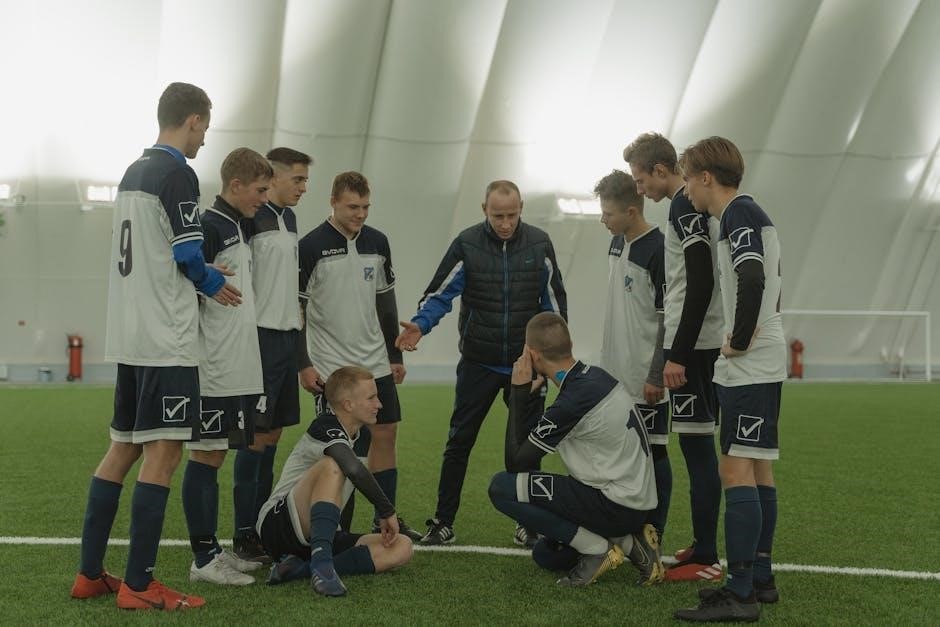
Role of Instructors in JROTC
Certified instructors, often retired military personnel, play a crucial role in guiding cadets through the JROTC program․ They teach leadership skills, mentor students, and oversee training activities, ensuring cadets develop discipline, responsibility, and character while fostering academic and personal growth․
5․1․ Qualifications and Certification of JROTC Instructors
JROTC instructors are typically retired military officers or non-commissioned officers with extensive leadership experience․ They must meet strict certification standards set by the U․S․ Department of Defense․ Instructors undergo specialized training to teach leadership, citizenship, and character development․ Their military background ensures authenticity in teaching practical leadership skills․ Certification involves continuous professional development to stay updated on curriculum and instructional methods․ These qualifications ensure instructors are well-equipped to mentor cadets effectively, fostering discipline and responsibility while preparing them for future challenges․
5․2․ Teaching Methods and Strategies
The JROTC program employs a variety of teaching methods to foster leadership development․ Classroom instruction is supplemented by leadership labs, hands-on activities, and community engagement․ Instructors use practical exercises to teach decision-making, problem-solving, and teamwork․ Physical training sessions emphasize discipline and physical fitness․ These methods create a well-rounded learning environment that encourages cadets to apply leadership skills in real-world scenarios, promoting personal growth and preparation for future challenges․

Extracurricular Activities and Community Service
Extracurricular activities and community service are integral to JROTC, fostering leadership, teamwork, and civic responsibility․ Cadets engage in volunteer work, parades, and competitions, enhancing their skills and character․
6․1․ Importance of Community Service in JROTC
Community service is a cornerstone of the JROTC program, emphasizing the importance of giving back to society․ Cadets participate in volunteer activities such as food drives, clean-up initiatives, and supporting local events․ These experiences foster a sense of responsibility, empathy, and citizenship․ By engaging in community service, cadets develop leadership skills while making a positive impact, aligning with JROTC’s mission to produce well-rounded individuals prepared for future challenges․
6․2․ Role of Extracurricular Activities in Leadership Development
Extracurricular activities play a vital role in enhancing leadership development within JROTC․ These activities, such as drill teams, color guards, and community service projects, provide cadets with practical opportunities to apply leadership skills․ They foster teamwork, communication, and decision-making while encouraging cadets to take on leadership roles․ Participating in these activities helps build confidence and prepares cadets for real-world challenges, reinforcing the program’s mission to develop capable and responsible leaders․ These experiences are integral to the holistic development of JROTC cadets․
Physical Training and Fitness Standards
Physical training is a cornerstone of JROTC, promoting fitness, discipline, and teamwork․ Regular exercise and team-building activities prepare cadets for challenges, fostering mental and physical resilience․
7․1․ Physical Exercise (PE) and Its Role in JROTC
Physical Exercise (PE) is a vital component of the JROTC program, fostering physical fitness, teamwork, and mental resilience․ Regular PE sessions enhance cadets’ overall health, coordination, and stamina․ Through structured workouts and team-building activities, cadets develop discipline and camaraderie, aligning with JROTC’s mission to build well-rounded leaders․ PE also complements classroom instruction by teaching practical skills like time management and goal-setting, preparing cadets for challenges in both academic and real-world environments․ This emphasis on physical fitness is integral to JROTC’s holistic approach to leadership development and personal growth․
7․2․ Fitness Assessments and Standards
Fitness assessments in JROTC ensure cadets meet established physical standards, promoting accountability and healthy lifestyles․ These evaluations measure strength, endurance, and agility, with specific benchmarks for each grade level․ Cadets are required to pass regular tests, including push-ups, sit-ups, and a one-mile run, reflecting their commitment to physical fitness․ Meeting these standards is crucial for advancing in the program and demonstrates discipline and dedication․ The assessments also serve as a motivational tool, encouraging cadets to improve their performance and maintain a high level of physical readiness throughout their JROTC journey․

Assessment and Evaluation in JROTC
JROTC employs a comprehensive assessment system to evaluate cadets’ academic performance, leadership skills, and physical fitness, ensuring they meet program standards and are prepared for future roles․
8․1․ Grading System and Academic Standards
The JROTC program maintains rigorous academic standards, with grades based on classroom performance, participation, and completion of assignments․ Cadets are evaluated on their understanding of leadership principles, citizenship, and core values․ Physical training and leadership roles also contribute to overall assessments․ Instructors ensure fairness and consistency, adhering to school policies while upholding the program’s high expectations․ Academic achievement is a key component, preparing cadets for future challenges and fostering a culture of excellence and accountability․
8․2․ Evaluation of Leadership Skills and Progress
Cadets’ leadership skills and progress are evaluated through practical exercises, physical training, and leadership roles․ Instructors assess performance in leadership labs, community service, and team-building activities․ Feedback is provided to guide improvement, emphasizing accountability and growth․ Evaluations align with program outcomes, ensuring cadets demonstrate competence in decision-making, communication, and problem-solving․ Continuous assessment helps refine leadership abilities, preparing cadets for future challenges and fostering a culture of continuous development and excellence․

Program Outcomes and Cadet Development
The JROTC program fosters leadership, citizenship, and life skills, preparing cadets for success in academics, careers, and personal growth while building strong moral character․
9․1․ Expected Outcomes for JROTC Cadets
The JROTC program aims to produce well-rounded individuals with strong leadership, critical thinking, and decision-making skills․ Cadets are expected to demonstrate improved academic performance, enhanced discipline, and a commitment to community service․ They develop self-confidence, teamwork, and communication abilities, preparing them for success in post-secondary education, careers, or military service․ The program also fosters a sense of responsibility, patriotism, and ethical behavior, equipping cadets to become productive citizens and leaders in their communities․
9․2․ Measuring Success in Leadership Development
Success in JROTC leadership development is measured through cadets’ ability to apply leadership skills in practical scenarios, such as leadership labs, physical training, and community service․ Instructors evaluate progress through performance assessments, peer feedback, and personal growth․ Cadets demonstrate improved decision-making, problem-solving, and communication skills; The program’s effectiveness is also seen in cadets’ heightened self-confidence, discipline, and sense of responsibility, preparing them to excel in future academic, professional, and personal endeavors․
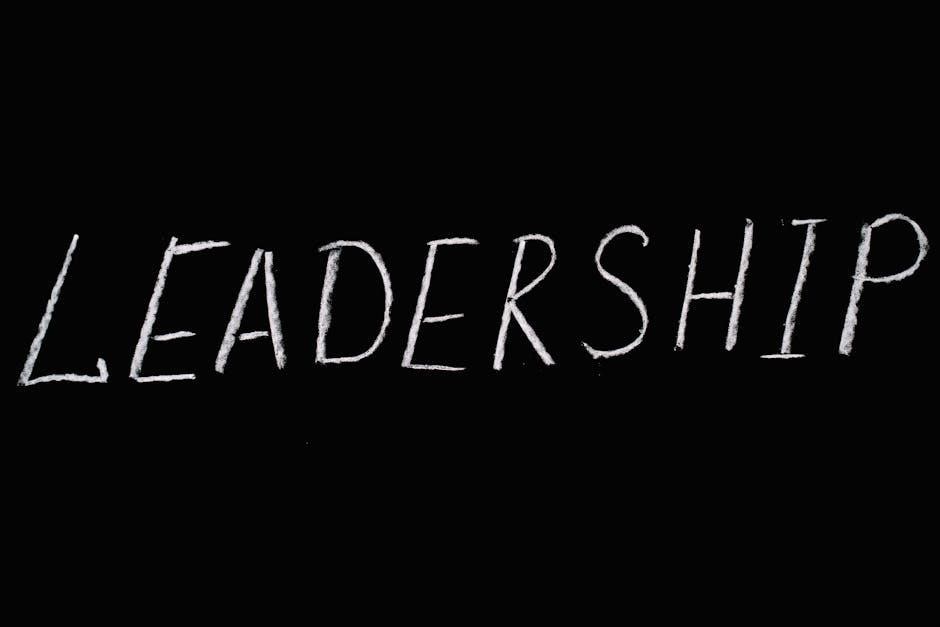
The Impact of JROTC on High School Students
JROTC fosters personal growth, self-discipline, and academic success․ It prepares students for college, careers, and lifelong challenges by building confidence, resilience, and leadership abilities․
10․1․ Academic Performance and Graduation Rates
JROTC significantly enhances academic performance and graduation rates among participants․ The structured curriculum and mentorship programs encourage cadets to excel in their studies, fostering a culture of academic excellence․ By emphasizing discipline and responsibility, JROTC helps students stay focused and motivated, leading to higher grades and better academic outcomes․ Additionally, the program’s emphasis on goal-setting and time management equips cadets with essential skills that contribute to their success in high school and beyond․ This support system plays a crucial role in ensuring cadets graduate prepared for future challenges․
10․2․ Preparation for Post-Secondary Education and Careers
The JROTC program excels in preparing cadets for post-secondary education and careers by fostering critical thinking, problem-solving, and leadership skills․ Cadets gain practical experience through community service, leadership labs, and mentorship, enhancing their readiness for college applications and workforce demands․ The program’s emphasis on discipline and accountability equips students with the confidence and resilience needed to excel in higher education and professional environments․ Many JROTC graduates successfully transition into military service, scholarships, or competitive career paths, leveraging the skills and values instilled through the program․
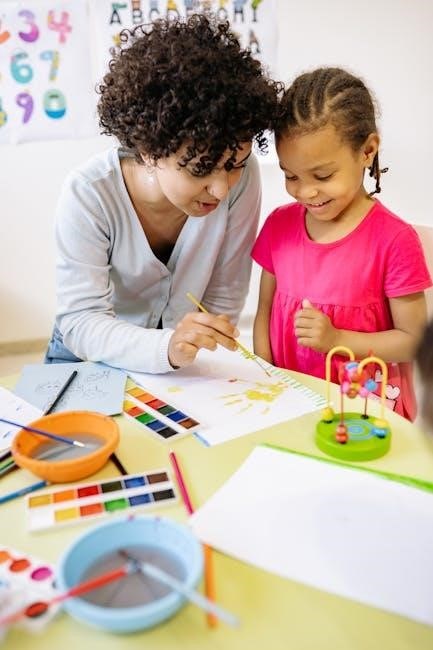
JROTC and Character Development
JROTC emphasizes ethical values, discipline, and responsibility, fostering strong character in cadets․ The program instills integrity, respect, and self-discipline, preparing students to become accountable citizens and leaders․
11․1․ The Role of Ethics and Values in JROTC
Ethics and values serve as the foundation of the JROTC program, guiding cadets to embrace principles such as honesty, integrity, and respect․ Through structured lessons and real-world applications, students learn to apply these values in their decision-making processes․ The program emphasizes the importance of moral character, encouraging cadets to become responsible individuals who contribute positively to their communities․ These ethical teachings are integrated into all aspects of the curriculum, fostering a strong moral compass․
11․2․ Building Discipline and Responsibility
Discipline and responsibility are cornerstone values in the JROTC program, fostering accountability and self-control in cadets․ Through structured activities like physical training, leadership labs, and community service, students learn to prioritize tasks and meet expectations․ The program emphasizes punctuality, adherence to rules, and personal accountability, preparing cadets for real-world challenges․ By instilling a sense of duty and responsibility, JROTC helps students develop the self-discipline necessary for academic success, leadership roles, and future endeavors․
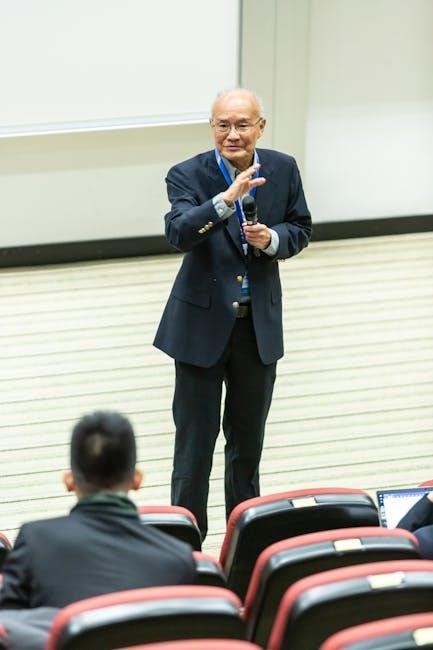
Transition to College and Military Service
The JROTC program aids cadets in transitioning to college through scholarships and academic preparation, while also providing pathways to military service for those interested․
12․1․ College Opportunities for JROTC Graduates
JROTC graduates often qualify for exclusive college scholarships and ROTC programs, enhancing their academic and career prospects․ These opportunities emphasize leadership and academic excellence, ensuring cadets are well-prepared for higher education․
12․2․ Pathways to Military Service
The JROTC program provides cadets with direct pathways to military service, preparing them for careers in the armed forces․ Through ROTC scholarships and service academy nominations, graduates can pursue commissioned officer roles․ The program emphasizes leadership, discipline, and patriotism, equipping cadets with the skills and mindset needed for military success․ Many JROTC alumni excel in their military careers, leveraging the foundational training and values instilled during their high school years․
The JROTC Leadership Education and Training Program fosters leadership, skills, and character, empowering cadets to excel in their future endeavors and make positive impacts in their communities․
13․1․ Summary of Key Program Elements
The JROTC Leadership Education and Training Program is a comprehensive curriculum that combines classroom instruction, leadership labs, physical training, and extracurricular activities․ Led by certified instructors, it emphasizes leadership development, character building, and community service․ The program fosters skills like decision-making, teamwork, and self-discipline while preparing cadets for future challenges․ By integrating practical training with real-world applications, JROTC equips students with the tools to succeed academically, personally, and professionally, creating a foundation for lifelong leadership and civic responsibility․
13;2․ Future Directions for JROTC Leadership Education
Future directions for JROTC Leadership Education aim to enhance program effectiveness through modernized curriculum and expanded community partnerships․ Integrating advanced digital learning tools and real-world leadership scenarios will prepare cadets for evolving challenges․ Emphasizing emotional intelligence, adaptive leadership, and civic engagement will further strengthen the program․ By aligning with contemporary educational standards and fostering inclusivity, JROTC will continue to empower students with the skills and confidence needed for success in both military and civilian life, ensuring a bright future for leadership development․
